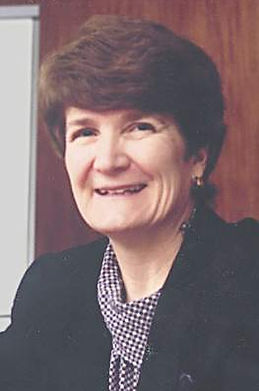Editorials for Clinical Practice
CHADIS Co-Director and President, Dr. Barbara Howard is a regular contributor to the Behavioral Consult column of Pediatric News and an Assistant Professor of Pediatrics at The Johns Hopkins University School of Medicine.
Dr. Howard is a developmental-behavioral pediatrician trained by Dr. T. Berry Brazelton at Harvard University. She is a national speaker on child behavior problems and is a past president of the Society for Developmental and Behavioral Pediatrics. She was a contributing author for Bright Futures™, Diagnostic and Statistical Manual for Primary Care (DSM-PC) and Bright Futures in Practice: Mental Health and has served on national committees of the American Academy of Pediatrics.
Head Banging, Breath Holding Typically Go Away

MIAMI BEACH — Gaining a deeper understanding of preschool behavior problems such as head banging or breath holding is valuable and enriching for a pediatric practice, Dr. Barbara Howard said at the annual Masters of Pediatrics conference sponsored by the University of Miami.
In part, it's rewarding because these problems are so common. About 5% of healthy children under 8 years of age have breath-holding spells. They typically begin during the first 12 months of life. In 18% of cases, another behavior problem is present, and in 23% of cases, there is a family history of either blue or white spells, said Dr. Howard, professor of pediatrics at Johns Hopkins University, Baltimore.
Cyanotic or blue spells tend to occur with an emotional precipitant. The child starts to cry, stops breathing, becomes limp and cyanotic, loses consciousness, and then goes stiff. In contrast, pain is typically the precipitant for pale or white spells, in which the child becomes pale, apneic, and asystolic, and may seize.
Although breath-holding spells are incredibly frightening, it's helpful to tell parents that they do not cause brain damage. Moreover, about 80% of spells will stop by age 5 years, and 90% by 6 years, Dr. Howard said.
Parents also should be counseled to avoid providing a secondary gain to the child by being too anxious after the spell or by consoling the child with treats.
Double-blind, randomized trials also have shown that oral iron supplementation for 6 weeks can reduce spells by 85%, possibly by bolstering pediatric neuroendocrine systems, Dr. Howard said. There is no need to test iron levels prior to supplementation.
Equally frightening to parents are preschoolers who bang their heads, often as part of a temper tantrum. Pounding is typically on the frontal or parietal part of the head, and is fairly regular with about 60–80 beats per minute. Spells last 15 minutes or less. They typically end by the time the child is about 3 years of age.
Head banging is present in 3%–15% of children, and it is seen more often in boys than in girls. It tends to be associated with sleepwalking, encopresis, and a family history of dyslexia. But the reason that parents worry about head banging most is that they know it's also associated with autism and mental retardation, Dr. Howard said.
“Sometimes I have parents bring in smart, verbal 3-year-olds that talk up a storm and engage with you, and they say, 'I'm worried about autism,'” Dr. Howard said. “They don't have it in perspective. The symptom itself scares people.”
Head banging typically does not cause pain or injury, unless the child is severely or profoundly retarded, in which case they can dislocate a lens or cause cataracts. Such children should be referred to a specialist.
Other conditions to include in a differential diagnosis, particularly if head banging begins suddenly, are otitis media, migraine, sensory deprivation, blindness, deafness, and central nervous system diseases that include head banging as a symptom.
Off-label use of the antihistamine hydroxyzine and the tricyclic antidepressant imipramine has been shown to reduce head banging, Dr. Howard said. But she has never prescribed either medication, having found success by counseling parents to increase daytime rhythmic activities such as dancing or rocking, reduce stressors, hold their children more at night, and bolt the crib to the wall to reduce the enjoyable motion of the bed moving with the head banging.
“When thinking about preschool children, it is really valuable to think about the needs that they may be expressing through their behavior and how solutions need to address those needs,” Dr. Howard said.
Some of those needs include the need for state regulation, mastery, positive emotional tone, and assistance regulating negative affect, and the need to learn prosocial behavior and empathy.
Dr. Howard’s contribution to this publication is as a paid expert to Frontline Medical Communications. E-mail her at pdnews@frontlinemedcom.com.





